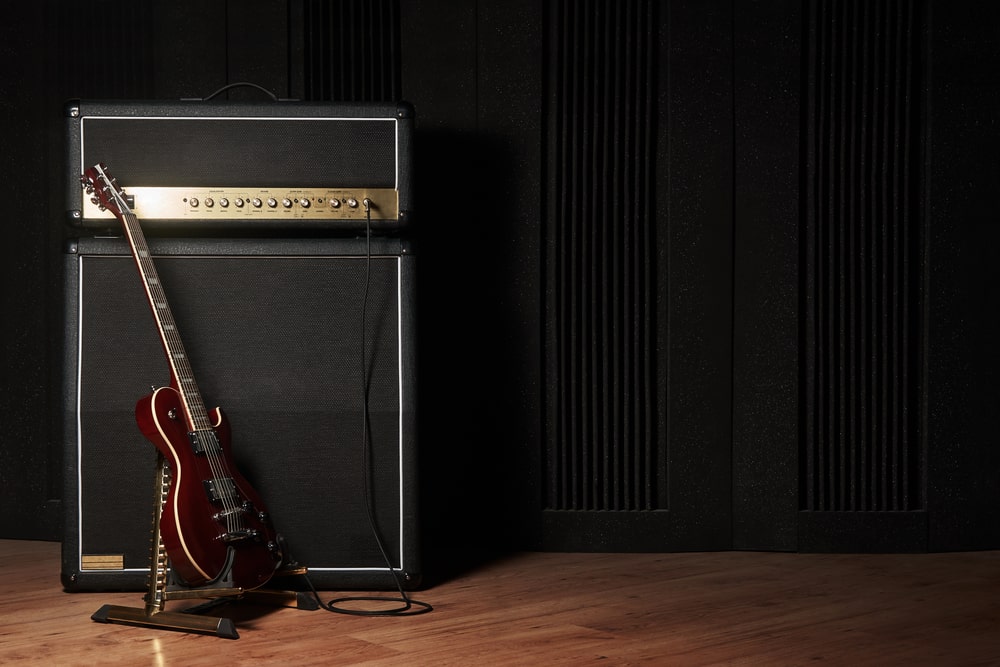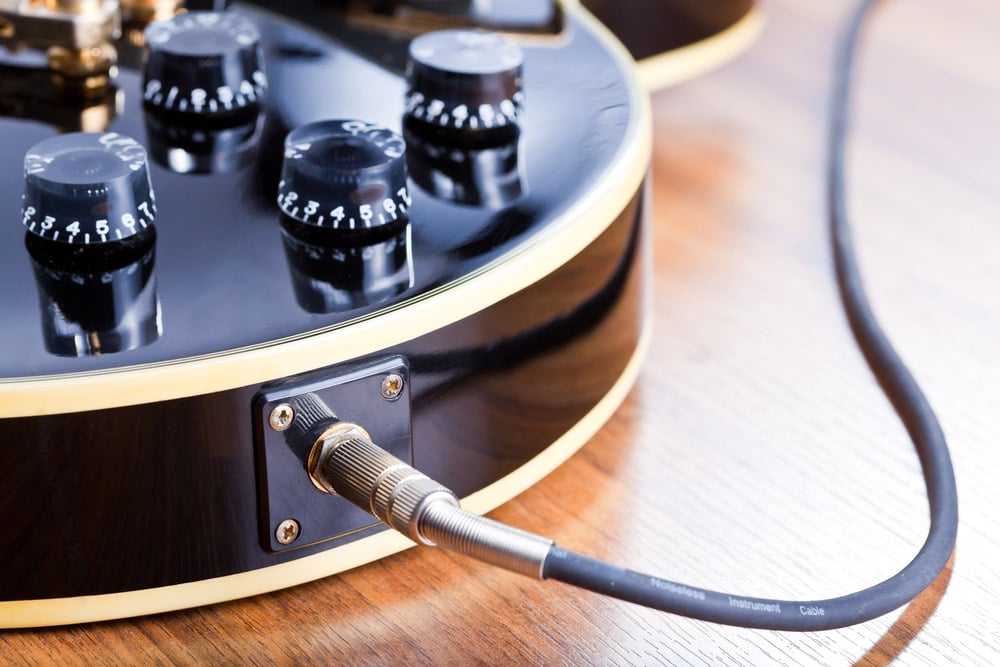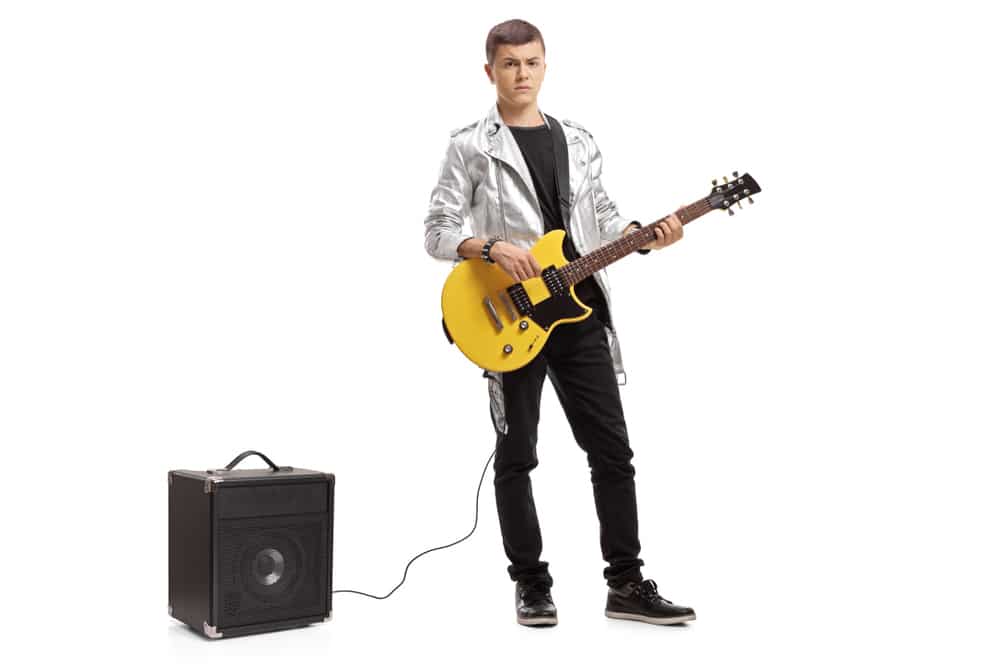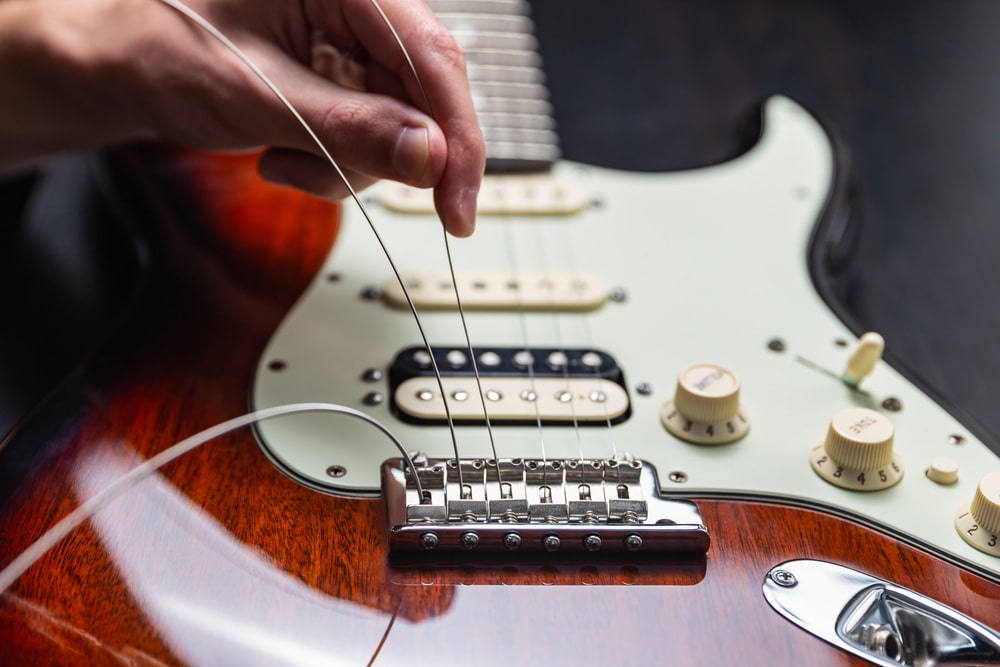
Any musician will tell you that electric guitars are the future of the guitar industry. They feature thin necks and relatively lighter strings, making them more portable and way easier to learn and play than their acoustic cousins. Statistics suggest that more and more musicians are investing in these guitars, thanks to the benefits they offer.
However, dealing with the buzzing issue is very important. Electrical guitars buzz when they aren’t properly fitted properly. As it turns out, they may sometimes buzz even without you touching the strings. As a result, the strings start vibrating, making an irritating buzzing sound.
If not dealt with, this buzzing sound can ruin your playing experience and offend your listeners. But worry not, as we have done all the research and listed some causes and solutions for this problem. Read on and learn how to eliminate electric guitar buzzing with our simple fixes.
Electric Guitar Buzzing When Not Touching Strings
Here are a few potential fixes if your electric guitar has started buzzing recently.
- Check the connections
Checking the connections is the first thing to do if you notice a buzz in your electric guitar, even without touching its strings. Given that it is an electric guitar, you will need to check all the connections to ensure its optimal performance. If there is something wrong with them, it will lead to problems.
The buzzing problem in the electric guitars is likely to arise if you are using it with a guitar amp. A guitar amp is a gadget used to amplify the guitar signals. It is a useful tool as it allows you to craft your desired tone at high volume levels. However, you need to make sure that you have connected it with your guitar the right way.
To connect your electric guitar to the guitar amp, plug one end of the guitar cable in the metallic jack on the front of your electric guitar and the other end into the jack on your guitar amp. If you are still unsure about it, consider reading the operator manual of your guitar amp. It will have instructions on how to connect it to the guitar.
In some cases, current leakage also caused buzzing in the electric guitars. So, go over all the cables and jacks and make sure that everything is in good condition. If you see any signs of damage, such as burnt or kinked wires, replace them to avoid this problem.
- Tune the Guitar
The buzzing problem can also occur if you have not tuned your electric guitar properly. It goes without saying that tuning is crucial to your playability. If your electric guitar is not tuned properly, it will sound bad, no matter which genre you play. In addition to that, it may also result in a buzzing problem.
So, if you have been facing the buzzing problem recently, make sure that the chords are not too tight. Too tight chords have often been associated with this problem. So, if your chords do not sound well, consider tuning your guitar, especially if you have changed your guitar strings recently.
Since electric guitars are usually made of wood, temperature and humidity changes affect their tuning. So, how do you tune your electric guitar? Well, there are lots of ways to tune your guitar. Nowadays, different mobile apps are available that help you tune perfectly using your mobile phone.
Make sure to choose the right instrument in the mobile app before starting the tuning process. Guitars come in different types, and each type is tuned differently. And yes, don’t forget to stretch the strings of your guitars while tuning. This will ensure perfect tightness around the pegs.
Most mobile apps offer tuning in two modes, i.e., auto and manual mode. It is recommended to choose the auto mode as it easily detects your notes and gets you into standard tuning. It is a good rule of thumb to tune up to the note. This ensures that your strings are in tune and tight around the tuning pegs.
On the other hand, if you tune down or loosen the strings, your strings may go slightly out of tune when you start playing.
- Amplifier
It may be often overlooked, but your guitar amp can also cause the buzzing problem. Actually, it is caused by the incorrect configuration of the amplifier. So, make sure that the amp has the right configuration on it. The configuration on the amplifier might have more treble or bass, which may cause this problem.
Beginners often face this problem as they do not know much about the configuration. If you are a beginner and facing this problem, consider going through your amp’s user manual. It will likely have information regarding the configuration settings.
Furthermore, you will learn about it over time as you play. Once you have selected the right configuration settings, the buzzing sound will disappear, and your guitar will start sounding as it is supposed to.
- Short Circuit
The short circuit is also among the common reasons for the buzzing problem. If there is a short circuit in your electric guitar, you may notice buzzing in your guitar even without touching the strings. Electric guitars have metal parts; check them for any signs of damage. There is nothing to worry about if your electric guitar has a short circuit.
Make sure that none of the connecting wires are in contact with your guitar’s body or metal part. Consider hiring a trained professional if you do not have enough knowledge. Not only will they fix it, but also diagnose its reasons so that you do not face this problem again.
- Get It Fixed
If you cannot reach the cause of the problem, it would be best to hire a technician and let them deal with it. An electric guitar is surprisingly complex under the hood, and dozens of components work together to produce the sound you hear.
Professionals are familiar with all those components and their working, so it would be better to seek help from them.
- Change the Strings
Sometimes, the problem may be with the strings of your electric guitar. If you have recently replaced your guitar strings, consider checking them. And yes, make sure to buy the strings of the right size. If they are thinner, it may alter the tension of your guitar strings, leading to the buzzing problem.
Furthermore, your strings may have gotten rusty over time. If that’s the case, consider replacing them, which will fix the problem.
The Bottom Line
Electric guitars have secured massive popularity lately, thanks to their portability and ease of use. However, many users have noticed a buzz while using these guitars, even without touching the strings.
If you face this problem, consider trying the solutions mentioned above. Make sure to tune your guitar properly for its optimal performance.





Guitar pickups, especially single coils like on Stratocasters and Telecasters and on P90 equipped guitars pickup 60 cycle hum from lighting fixtures, appliances and your household electrical wiring. Your guitar is grounded and lions share of annoying buzzing/whining/humming should go away when you touch the bridge and the strings of your guitar. That’s normal. You can help the situation somewhat by adding shielding to the pickup cavity’s, pickguard and control cavity. But just so long as the noise quiets down when you touch the strings, that’s all perfectly normal.